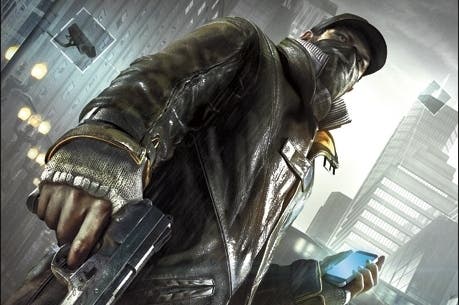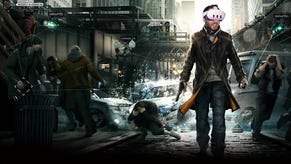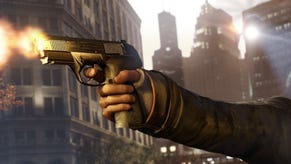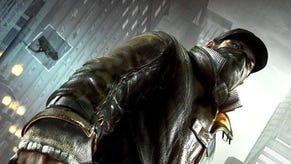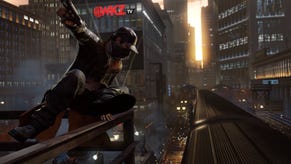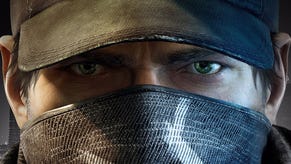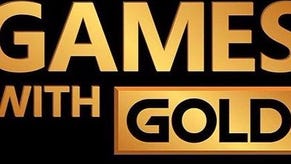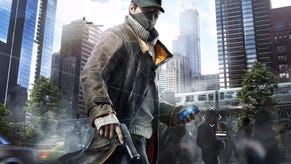Ubisoft cancels the next-generation launch party
Watch Dogs' delay is a blow, but also a sign of the French publisher's growing might.
Yet more proof this week, if more proof were needed, that the next generation does not start when Sony says it does. Or when Microsoft says it does, for that matter. The last-minute delay until spring 2014 of Watch Dogs, Ubisoft's post-internet open-world 1984-'em-up, was met with a certain amount of shock and no small degree of disappointment. Once that wore off, however, the greater concern was what we are going to play on next-gen consoles instead.
Deep down I always try to be optimistic about sequels, even though I probably make all the same jokes about them as everyone else, but I'm really struggling to get worked up about Killzone: Shadow Fall or Killer Instinct. There's Dead Rising 3, the latest in an unpredictable series with strong pedigree, but given Capcom's run of form at the moment, I half expect to burn through that and throw "out of ten" on the end without interrupting my gait.
OK then, maybe I am not as optimistic about sequels as I claim (although that really was a joke - I'm sure Dead Rising 3 will be, you know, transcendent), but besides new instalments in proven series like Battlefield, FIFA and Forza Motorsport that will sustain a few of us, Watch Dogs' delay means there's a lot resting on the shoulders of Mark Cerny's Knack and Crytek's Russell Crowe QTE extravaganza for those of us seeking new experiences. At least there's ResoGun and Crimson Dragon.
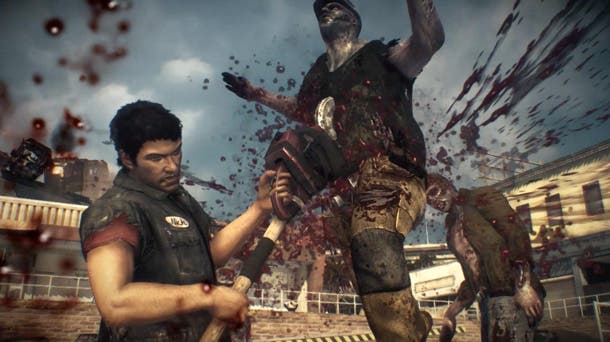
One of the interesting things about Watch Dogs' delay, though (apart from the fact nobody seems to care that The Crew was delayed at the same time), is what it says about Ubisoft's place in the games industry hierarchy. Activision and Electronic Arts may be seen as the true titans, stomping around buying game studios for a billion dollars, squabbling over the mighty first-person shooter genre and steamrollering retail with Skylanders and FIFA, but they act more like utility suppliers than creative enterprises a lot of the time. "Are you moving console home? Just give us your meter readings and there will be no interruption in your XP supply."
By contrast, Ubisoft didn't even wait for Sony and Microsoft to announce their plans before throwing something new at us last year. One of only two games at E3 that appeared to be running on futuristic new hardware (the other being the ill-fated Star Wars 1313), Watch Dogs stole the show, and neither first-party line-up has done much to steal its thunder since. For me the sense of anticipation stems from the way it threads the eye of the next-gen needle: city-hacking sounds like an empowering new mechanic for the kind of open-world carnage that needs extra power, and it's also the first pitch for a second-screen experience that I haven't responded to with a dubious frown.
It remains to be seen whether hacking your surroundings proves more than a gimmick or whether, as one Eurogamer wag has put it, Watch Dogs is more than just Assassin's Creed in a baseball cap. But either way it has already become part of an interesting pattern. While larger rivals EA and Activision seem almost caged by their vast resources and globe-spanning scale, Ubisoft continues to invest in creativity from top to bottom.
Take Assassin's Creed, Ubisoft's biggest series. It follows a predictable schedule and development model and it occupies a single genre, but it is now on to its fourth new protagonist and sweeping mechanical overhaul in six years. Each new game gets bigger and most get better. And for the last few releases, Ubisoft has thrown in an alarmingly good multiplayer game for no extra money and kept on refining and adding to it - even when evidence elsewhere in the games business suggested such things were not discouraging trade-ins in the way executives had envisaged.
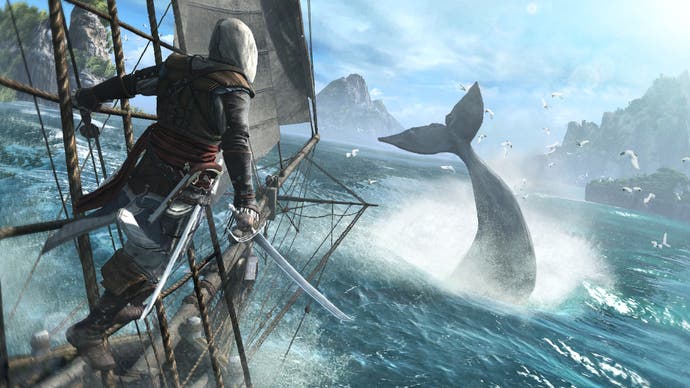
Consider some of the other games Ubisoft has released or announced in the last 18 months. ShootMania Storm was a first-person shooter that had more in common with The Running Man, Tron and a box of paints than Call of Duty, Rayman Legends was better than anybody could have hoped or expected, Far Cry 3: Blood Dragon was a love letter to Michael Biehn's IMDB page and VHS action movies (if those are indeed separate things), while Child of Light sounds fascinating.
Oh, and it turns out I was wrong to say Watch Dogs was the first game to make a strong pitch for second-screen experiences. That was ZombiU, a survival horror game with permadeath that sowed discomfort between TV and Wii U GamePad by leaving you to sweat with vulnerability whenever you reached for your backpack.
We used to say when Nintendo announced that it was delaying something - a new Zelda, for example - that it was a guarantee that the result would be a better game. Increasingly, it seems fair to say that about Ubisoft, too. I Am Alive went through a development hell more painful and toxic than the post-apocalyptic vision it eventually presented, but despite some mechanical clunkiness it proved suitably interesting over its short running time, while Far Cry 3 was delayed as well, before going on to be so good that it overshadowed the far more divisive Assassin's Creed 3. Watch Dogs' delay may be disappointing for those who pre-ordered it, but we shouldn't feel pessimistic. When Ubisoft delays a game rather than canning it, it must be worth fixing.
Far Cry is also an example of how Ubisoft's creative streak isn't hampered by the peculiarities of game development that see games and game series switch between different studios over their lifetimes. The original Far Cry was made by Crytek, whose own Crysis was seen as its spiritual successor, but over three games whatever spirit Crytek had accumulated seems to have dissipated, while Far Cry itself has passed through new and skilled hands that have made it their own. The company is also renowned for expecting multiple studios to collaborate on the same releases, with Reflections doing the driving bit or Shanghai tossing in the multiplayer, and the seams rarely show.
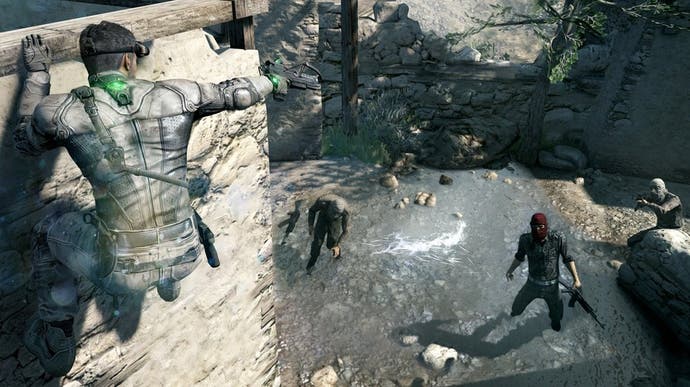
Ubisoft doesn't get everything right, of course. Splinter Cell: Blacklist, the first game from an expensive new Toronto studio (expensive for the Canadian government, anyway), fell flat at the end of August - a mixed bag of a campaign smothered by irresponsible storytelling and only vaguely saved by quickly forgotten multiplayer. And it wasn't long ago that Ubisoft was synonymous with digital rights management and shoddy attitudes to PC gamers - a reputation that won't have been enhanced by ongoing delays to PC versions of its most interesting games. Launching the wonderful From Dust on PC in deeply unrefined condition two years ago was a low point.
Overall, though, the French and now extremely global publisher's reputation has only been enhanced by its rise over the last few years, which has seen it grow from one of a handful of second-tier companies competing for the middle of the market into the most consistently interesting triple-A games publisher on the planet.
With Watch Dogs now as far as six months away from release and a gaping void in its spot on the PS4 and Xbox One launch line-ups, it's tempting to say that if anyone gets to choose when the next generation starts, these days it may be Ubisoft.
